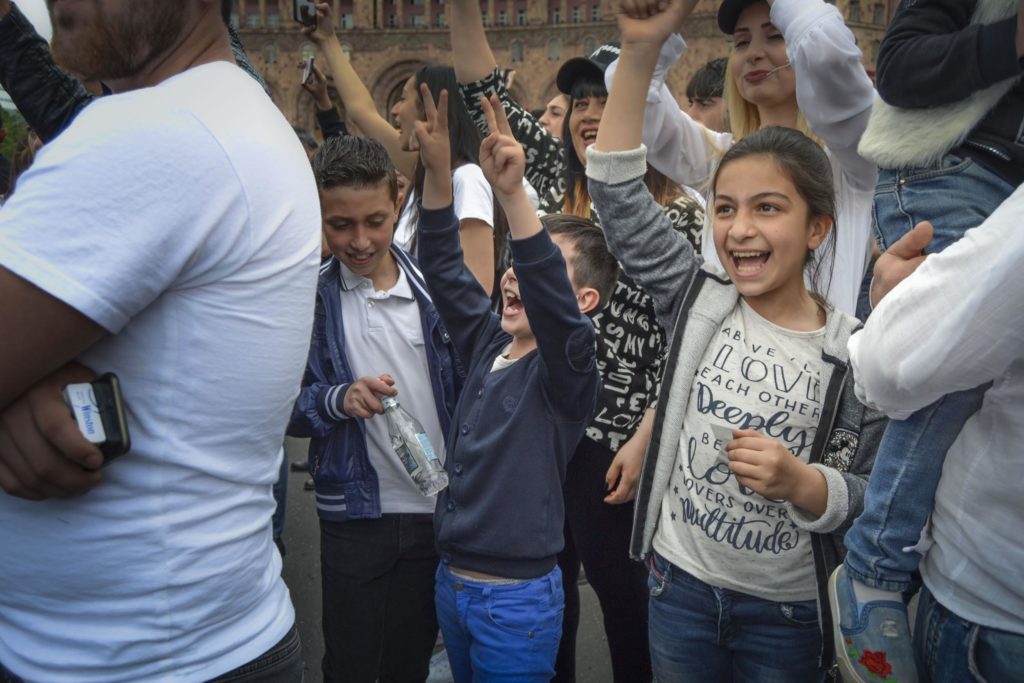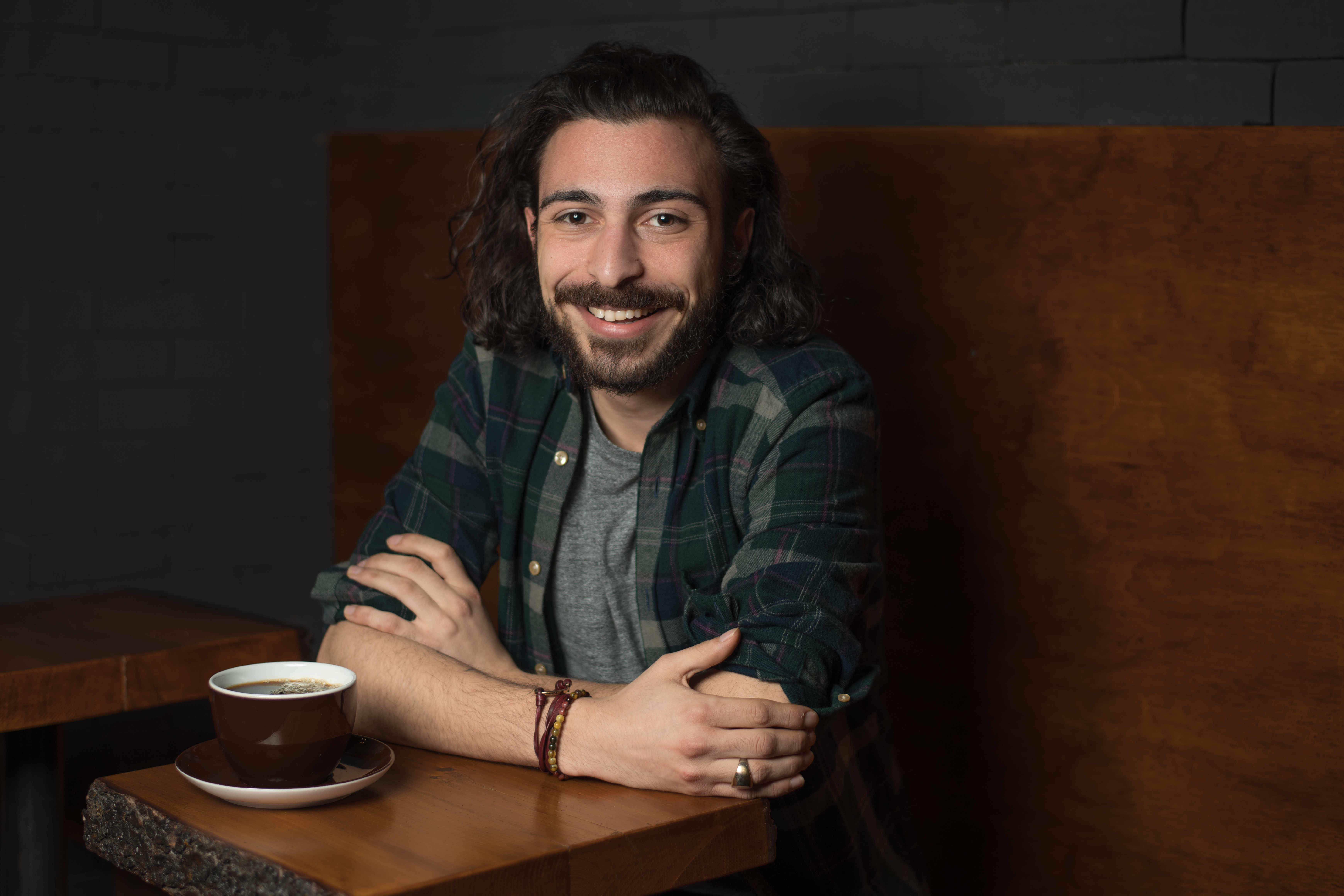
I recently participated as a speaker for a forum in Toronto and Montreal, in which I was asked to speak about the 18 months I spent living and working in Armenia. The event offered me the opportunity to reflect on the impact this time had on me as a person, now that I am once again living in the Diaspora—because when you return to the Diaspora, you start seeing things differently.
There are many misconceptions floating around about what Armenia is versus what it should be. But at the center of this battle between fact and fiction, there lies an important tool: repatriation, or, the act of returning to one’s home country.
How repatriation is understood and spoken about should be at the forefront of our conversations in the Armenian Diaspora. It is the tool that can unite us.
I was born and raised in Toronto, attended an Armenian private school for 11 years, and have been an active member of Toronto’s Armenian community my whole life. My Armenian identity was introduced to me as a politically-motivated cause that I would constantly have to fight for. The more time I spent fighting for that cause by spending time at my community center, the more I felt would be in touch with my Armenian identity.
In Aug. 2016, I completed a four-month volunteer term with Birthright Armenia. By the end of my volunteership, I was offered a yearlong contract with one of Armenia’s leading non-profit organizations, Homeland Development Initiative Foundation (HDIF), which works with women in Armenia’s rural communities to produce one-of-a-kind handicrafts sold around the world, providing jobs and promoting sustainable development.
I returned home to Canada to consult my family, friends, and professional network about accepting the job offer. Within three weeks, the decision was clear. On Sept. 21, 2016—the 25th anniversary of Armenia’s re-independence—I landed in Yerevan with two heavy suitcases, my saxophone, and one the best years of my life ahead of me.
By moving to Armenia, I suddenly found myself in a position that preserving my Armenian was a part of everything I did.
In the Diaspora, we sing patriotic songs in a banquet hall. In Armenia, we listen to the newest interpretations of Armenian folk fusion at a local music venue. In the Diaspora, we preserve our identity by visiting Armenian community centers. In Armenia, I felt my identity preserved simply by walking down the street to the grocery store. In the Diaspora, we discuss possibilities for change in the country amongst a group of Armenian Diasporans. In Armenia, we discuss such topics with Diasporans, as well as non-Armenians, from all over the world, including those born and raised in the country.
In the Diaspora, we preserve our identity by visiting Armenian community centers. In Armenia, I felt my identity preserved simply by walking down the street to the grocery store.
In Oct. 2017, I moved back to Toronto to help my brother bring to life his vision of running one of the city’s most unique coffee shops, but I am still finding new ways in which I was affected by the time I spent abroad. First, it gave me the chance to encounter and interact with others who had repatriated, either permanently or temporarily. I and everyone I spoke with experienced some kind of shift in their understanding, that resulted in seeing Armenia as a real and tangible place. Sometimes these individuals were making a physical connection with the country for the first time in over three generations. It takes a lot of bravery to rediscover one’s roots after such a large gap.
But also, living in Armenia freed space in my mind and time in my life that gave me the opportunity to be myself to an extent I had never experienced before. I began to realize that no matter who I became, I would still be Armenian.
How connections and shifts of this nature can be achieved and what they might look like are limitless. We are constantly redefining repatriation and discovering new ways to make connections, but physically spending time in Armenia is and always will be crucial.
We also, however, face some major obstacles here in the Diaspora. There are younger generations here who are taught about Armenia’s reality by Diasporans who grew up during a time in which Armenia was for the most part inaccessible—the Cold War years. The Soviet Union, of which Armenia was a part, was culturally very different from and at times hostile to the West. This alienated an entire generation of Armenians in Western countries. As a result, many of them did not have the opportunity to go to Armenia as young people and interact with it the way we can today through programs like Birthright Armenia and Repat Armenia. This can be dangerous, because young people’s desire to repatriate often depends upon how strong bridge of understanding is between the Diaspora and the country.
I feel incredibly lucky that when I when I think about Armenia today, I think about my morning walk to work through specific streets of Yerevan. That I miss things like my usual hangouts, my friends, and the ease of getting around. These tangible thoughts encourage me to have a real interest in what goes on in my homeland and understand how I can best assist the country that made me the person I am today.
Repatriation is an investment in yourself and in cultural preservation. And while it might seem daunting at first, it’s crucial that we encourage Diasporans to put themselves in positions where they can logically approach the idea. That means getting out of your comfort zone, by taking meaningful trips outside of just Yerevan, by volunteering, running a workshop, or trying to spend your two-week trip to Armenia in a different city like Gyumri, Dilijan, or Vanadzor. Only by exposing yourself to the full picture, can you truly understand whether repatriation is right for you.
The events that took place in Armenia two months ago were the epicenter of potential positive and sustainable change, and the Diaspora needs to play catch up in creating an environment for such change. In a youth driven and peaceful act of civil disobedience, the people of Armenia were able to come together and capitalize in the strength that comes with unity. The Diaspora must follow suit and eliminate divisions that exist. We can revolutionize cultural preservation by centering it around repatriation. Take the time to speak to anyone that has recently had the opportunity to live in Armenia or reach out to Repat Armenia, an organization dedicated solely to helping Diasporans integrate into Armenia socially and professionally. They will give you a whole host of different ways to help you define repatriation for yourself.
In Armenia, the Velvet Revolution saw a youth-driven initiative take power away from outdated forms of authority and unite as a nation. I think the Diaspora could also use a little more velvet.
Author information
The post The Diaspora Could Use a Little More Velvet appeared first on The Armenian Weekly.
Source: Armenian Weekly
Link: The Diaspora Could Use a Little More Velvet

